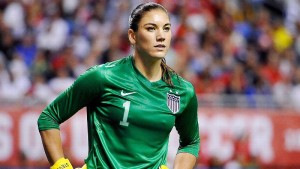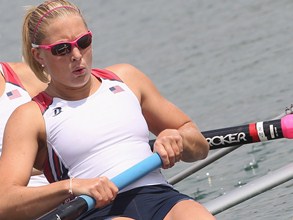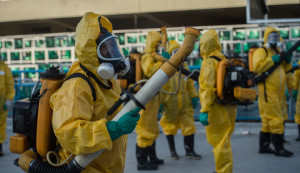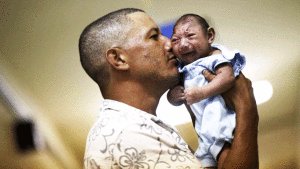The Public Can Only Support The Athletes Who Choose
To Not Attend
The Zika virus has been causing Brazil many problems and seems to be getting more and more dangerous. CNN wrote that the virus is “scarier than initially though.” Because the summer 2016 Olympics are being held in an area tormented by Zika, athletes have been speaking out about this controversy and contemplating whether or not they will travel to Brazil to compete in the upcoming games. The public cannot do anything about this situation. If athletes believe there is to high of a risk of getting infected, forcing those athletes to compete would be unethical. The public can do nothing about the athlete’s decision to not compete in the 2016 Olympics.
Zika was first isolated in Uganda in 1947 with a few cases reported in Asia and Africa. In 2013, there was an outbreak in French Polynesia, and now in 2015 there is an epidemic in Brazil. The Ades mosquito is what transmits Zika. Many people will be asymptomatic, but if symptoms do occur, the common ones are eye redness, fever, rash, and joint pain. The most dangerous symptom that involves women is microcephaly. Microcephaly is a neurological brain disorder that can be passed down from the mother to the fetus and cause abnormally small heads in children because of defective brain development. This side effect, shown in the picture below, could have spooked many people as pregnant women have been advised to not travel to the games and the World Health Organization has declared the Zika epidemic a public health emergency of international concern.
With the Zika virus troubling the Rio Olympics, how can the public react if some of the world’s top athletes do not compete? The Zika virus has been shown to be transmitted by mosquito, but recently the virus has become more dangerous because the Center for Disease Control, (CDC), has reported that it can be transmitted sexually as well. The virus has already spread to the United States with a total of 358 cases of Zika, some of them being acquired vector borne, but mostly have been travel associated. 31 cases have been reported where the person was pregnant, and seven cases where Zika was acquired sexually. Much of the news in America focuses on what’s happening with Zika in Brazil, very little of it shows what’s happening in regard to cases being reported here in the US.
The question is do athletes have an obligation to compete in the games because of respect for us as spectators and the Olympic games? No, and there is nothing we can do about that. Olympic athletes don’t owe us anything. They are the ones that have made tremendous sacrifices in their lives to get to the level they are at now. If they feel that Zika is to harmful for their bodies or to their future children and decide not to compete, the public can do nothing. Asking a person, whatever their status, to make them sacrifice their body or child because we want them to win a medal is unjust. It is not up to the public to decide whether Zika is dangerous and should affect the Olympics. There is not much known about the virus but athletes will take in the little information they know about the virus and make the best decision they think is right for them, not for us as spectators.
Some athletes who have spoken out are Hope Solo and Megan Musnicki. Hope Solo, the staring goalie for the United States Women’s national soccer team, told Sports Illustrated in February, “If I had to make the choice today, I wouldn’t go. Competing in the Olympics should be a safe environment for every athlete, male and female alike. Female athletes should not be forced to make a decision that could sacrifice the health of a child.” Other athletes, like Meghan Musnicki who won gold in the women’s eight boat in 2012 said, “It’s never entered my mind not to go. It would be the pinnacle of my rowing career to represent the US again at the Olympic games. I’m not intending on being pregnant before the games or immediately following the games.”


As you can see, some athletes are concerned the virus is a threat and others are not fazed by it. Most athletes who are not worried about becoming pregnant any time soon are okay with competing. The virus affects the female athletes who are planning on starting a family within the near future, hence why American Officials have left the decision up to each individual athlete on whether or not they are going to compete in the games.
Sexual transmission can scare many athletes as well because like the Boston Globe states, “When they prepare for the Olympics, elite athletes put their lives on hold. Some take a leave of absence from college or career. Some put off weddings. Some wait to start families. So it is not a coincidence when some Olympians welcome babies a year or two after their Games.” Once Zika has been cleared from a woman’s blood, Zika would not affect future pregnancies if she were not pregnant when she contracted the virus. But, it is unknown as to how long it takes for Zika to be cleared from a person’s blood. This takes the disease to a new level of danger because a woman that’s not pregnant can contract the virus and if Zika is still in her blood when she finally becomes impregnated in the future, her child could be affected with microcephaly or any other side effects of Zika. This is a main concern for some athletes that plan on starting a family in the near future.
CNN in April this year came out with an article stating that the virus has not only been linked to microcephaly but also, premature birth, eye problems, and other neurological conditions. Now information also states that Zika exposure can affect pregnant women in all trimesters, not just the first. As the clock ticks closer and closer to the Rio Olympics, more dangerous information is being discovered and reported regarding Zika.
With all the new information about Zika being more dangerous then first expected, if athletes choose not to compete, the public has no right to backlash them. They have worked their whole lives to compete in an Olympic games so they want to compete and will do whatever they can to compete, if they believe Zika is to risky, it is their decision to back out and the publics job to support them.
With Zika running wild in Brazil and a lot of information unknown about the virus, will all of the top female athletes in the world compete in the Olympics? If Hope Solo, considered one of the best keepers in the world, if not the best, doesn’t travel to the games, how will that affect the US women’s soccer team’s performance? The same goes for other athletes who have qualified and do not compete. The virus makes it a tough decision for athletes who have worked their whole lives to compete in Olympic games. I myself being an athlete wouldn’t know what to do. But whatever decision each athlete makes, the public needs to support them because they are doing what they believe is best for their safety and the safety of any future children. It is not fair to coerce an athlete to compete.

Zika is mosquito borne, similar to malaria. Malaria is more prevalent across the world so I looked up ways to prevent malaria and compared them to what Brazil is doing to try and stop the spread of Zika. UNICEF.org‘s big reason for prevention for Malaria is by mosquito nets being placed around all entrances and exits and especially making sure to be under a net when sleeping. Also, having air-conditioned rooms to drop temperatures and taking antimalarial medication as directed. Spraying your room before bed with a pyrethroid to kill bugs that may have come in during the day and covering any bare areas on your body with lose fitted clothing has also been suggested.
Brazilian officials have stated many times that the Olympic games will take place during August, which is Brazil’s winter, so the weather will be colder meaning there will not be many mosquitos out. They have also had many workers out spraying mosquitos and trying to get rid of standing water to eliminate breeding sites.

Brazil seems to thinks that the cold weather makes Zika a non-issue. Maybe if there was a vaccine for Zika it would not be an issue, but because there is no vaccine made to combat Zika, health officials are doing their best to educate the Brazilian population on their role in fighting Zika.
When wiping out the entire population of the Ades mosquito is almost impossible and the government’s main hope for containing Zika being the weather, will athletes think the precaution being taken are enough to compete?
With headlines of articles about Zika being titled, “Zika virus ‘scarier than initially thought’” from CNN, “Zika is Coming” from the New York Times, “Zika virus hasn’t been contracted in KC, but mosquitoes that can carry it are here” from the Kansas City Starr, and “The Rio Olympics are a mess 7 months before the opening ceremony” from Business Insider, how are athlete not supposed to be extremely worried about their safety.
With the media portraying Zika as a very threatening virus and the decision on whether to compete in the Olympic games left up to each individual athlete, the public can do nothing but hope that each athlete will make the best decision in this situation.
REFLECTION:
- When researching Zika, I found this really good phrase that drew me into an article, “Scarier than initially thought.” After I saw that, I thought it would be a good title because Zika, being scarier than initially thought, is what is causing the athletes to make the tough decision on whether or not to attend. I tried to have a subtitle for my article but was getting very confused with the website. I wanted the subtitle to be, “the public can only support the athletes who choose not to attend.” I couldn’t figure out a way to make that go directly underneath the main title so I just put it right above the top picture. I believe my first sentence could be more creative. It does state the issue but could have been said in a more creative way.
- The picture at the very top gives the reader an idea of what the article will be about and the opening paragraph sets the stage for the Zika virus affecting athlete’s decisions. I showed exigency by mentioning that the Zika virus is plaguing the summer 2016 games that are occurring in just a few months and stated how some athletes may not compete. My main focus on the article was that the public couldn’t force an athlete to compete but only support their decision so I made sure to put that in the first paragraphs to give the reader my controversy.
- My idea and was that the public can’t pressure athletes to compete because they want them to win a medal or the USA to be dominant in the Olympics. I kind of developed it to saying that it wasn’t the publics right to decide if Zika was actually dangerous or not and if it should affect the Olympics. I gave information on how the media was portraying Zika, how other diseases mosquito transmitted were contained, and some of information about it to kind of say that it’s the athletes bodies, lives, and their future children’s lives at stake so they make the choice on competing. Plus, that there shouldn’t be pressure from the public because that is unethical.
- The way I tried to organize my presentation was to state the issue, give background information on the Zika for readers who didn’t know much about it, state my opinion on the topic, and then give information recent information on Zika and how dangerous it could actually be. I thought that adding how malaria, another mosquito borne illness, was treated and how Brazil is just mainly banking on the weather to protect everyone was unique.
5. Like I said in the last question, I tired to give background information on Zika at first, then give recent information and always relate that back to the virus becoming more dangerous and that is why its making it a tough decision for athletes because it seems the close and closer the Olympics get, more sketchy information comes out. Some readers may think that athletes owe it to their country to compete in the Olympic games but I challenged that idea.
6. I changed my argument at the last minute. I was taking the stance that I was sick of Zika only affecting women and making female athletes choose whether or not to compete in the Olympic games. I went to the writing center three times and the people editing it said it was fine. The last person I went to on Friday said my article was very “sourcie.” I didn’t have much voice in my piece and that I was all over the place going from source to source. That is when I changed my argument and went the different route on the public can’t pressure athletes to compete. I wasn’t able to go to the writing center again because the final draft was due Monday. So I restarted my article and tried to change my focus to what the athletes are taking into consideration regarding Zika, how that could affect their decision to compete and what the public could do if they wouldn’t. I made my debate by stating that athletes don’t owe the public anything. I tried to bold main points of mine to make sure that stood out in the article. I used the research about Zika and the information that the public knows about it a big reason as to why athletes are questioning to compete.
7. I actually didn’t realize that we had to include all six secondary sources that we had listed that one-day in class. When the writing center guy told me that my article was very “sourcie,” I went in the complete opposite direction. I only included two different quotes from athletes stating their opinion, information from CNN, statistics from the CDC, and a quote from the Boston Globe. There are a few times where I could have stated this was from… for example, my information about malaria prevention, I got from UNICEF which could be another secondary source. I also used some titles from different articles about Zika to see how some media can be scarring people about the virus. A few were visuals. I tried more to add more of my voice and opinion on the issue instead of using sources like my first draft had.
8. Every time I utilized a source I tired to talk around it and give contextual information to introduce it or state information about it after the quote. I at first thought I needed to cite each quote but then realized that there are no page citations in an article. I used some titles of articles about Zika to show what the virus’s reputation was in the media. The quotes I used were to give top athlete opinions on the issue and question how if Solo didn’t compete, how would that affect female soccer? The quote from the Boston Globe was to show that Olympians live abnormal lives. They put off a lot of things to train and compete so a virus like Zika, which could damage their future children, could cause major concern.
9. I used logos when comparing malaria versus Zika preventions. How with malaria there are actual things being done, like mosquito nets up, and medical treatment that could help. Zika has no medical help, no vaccine in the making, and Brazil counting on the weather as their main source of protection. I don’t establish much credibility. I could of stated how I am an athlete and what I would feel like in an Olympians situation with the games coming up. I established pathos by showing the picture of microcephaly and describing what is it. The CDC statistics are shocking because I never thought that many cases were already reported here in the United States. Plus, the quote from the Boston Globe can make the readers feel bad for athletes who have put off families to compete, and if they do compete and contract Zika, they could be left with an Olympic medal but also a child with microcephaly.
10. I thought having a picture of what microcephaly looks like was really important because most people haven’t seen a baby with the condition and it is a horrible condition to have. I didn’t really provide captions to my pictures, which could have been helpful. I wanted to show pictures of the Olympic athletes who gave the quotes. The picture of the soccer team winning gold I thought was important because if the starting keeper, the best keeper in the world, doesn’t attend, how will that affect the reining Olympic champions? The Brazilian officers spraying mosquitos in that suit I thought was a good pictures because they are in crazy protective suits that I thought I only see in movies. It shows again, how dangerous this virus is.
11. Like I said before, my first few drafts are completely different from my final one. Every in class peer review was using my old drafts. I went over with my Professor Barone taking the stance of women only being affected but completely changed my argument on the issue at the last minute so I had to re-due my whole article a few days before the final was due. Before I submitted my final draft I sent it to Alana and she gave me some good feedback on what to change or make clear because I was not able to go to the writing center. I thought the last man I spoke to at the writing center gave me good ideas to go with from the argument we came up with.
12. I used hyperlinks when I quoted from things that could be found online. Basically any information I got on a website that could be accessed easily relating to my topic. I also hyperlinked the articles with the headlines that I quoted.
13. Normally before I submit my final drafts I got to the writing center at least 4 times to get a few opinions on my article and different idea to go with my piece. They also correct my grammar and make sure everything is clear. This was the first time I wasn’t able to do that because the last guy I met with made me very concerned for my final draft. I reread my article a few times myself and had two friends read it over to see if there was anything unclear or if grammar mistakes were evident. I hope we caught all of them.

